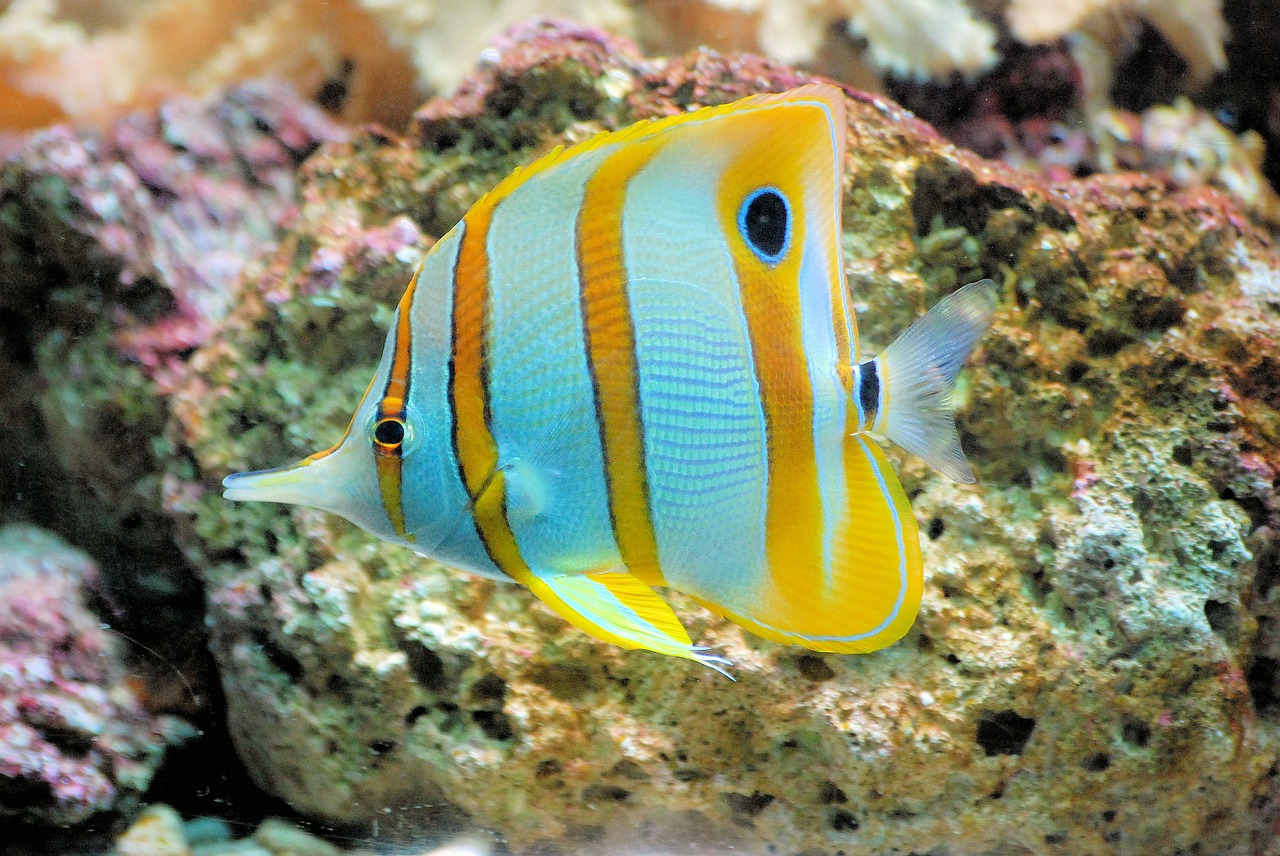Could “Climate Change” Wipe out Coral Reef Fish?
The tropical Cooperband Butterflyfish can only tolerate a small temperature range. Ocean warming resulting from climate change could destroy this species, along with several other tropical fish species.
Greetings! Today I’d like to talk about the immediate danger of our beautiful tropical reef fish brought on from the adverse effects of climate change. You see these ocean fish are extremely vulnerable to climate change as published in recent research reports from the University of Washington. The report states that, “They will succumb if waters warm by even a few degrees.” Lise Comte, one of the researchers from the university’s School of Aquatic and Fishery Sciences said, “Tropical marine fish already live really close to their thermal limits. Fish like the copperband already live on the edge, so even a small rise in temperature could be too much for them.”
Comte continued and said, “Climate change is the greatest emerging threat to biodiversity, and conservation actions are urgently needed. Ocean conservationists have a toolbox of effective techniques to help fish resist climate impacts. Yet, we still know little about which areas and species are the most at risk and where management actions should be prioritized.”
Where on the Planet do Fish Need the Most Protection from Climate Change?
Once again according to Lise Comte, “It’s a question researchers have asked for land animals, but rarely in the water.” So Comte studied 485 different fish species, including the copperband Butterflyfish. She researched species from the oceans, lakes, and rivers to see which were the most vulnerable to climate change. Her results? “Freshwater and ocean fishes are different when it comes to climate change. In streams and lakes, cold-water fish are the most sensitive to temperature change. In the oceans, tropical fish are the most vulnerable.” As a result, ocean researchers are looking more and more to marine protected areas, which could be set-aside as “no-take zones.” These zones would be “low-tech, cost-effective” ways to help fish survival from the increasing effects of climate change. The researchers call it climate change adaptation strategy.
An international team of scientists led by Callum Roberts of the University of York recently published a study explaining how these marine protected areas would work. “When created and managed well – [these zones] can protect ocean ecosystems, and the people who depend on them, from climate change.”
One logical method for these marine protected areas would be by “setting aside areas likely to stay cooler as the ocean warms, such as in the shadow of an island, or where deep, cold ocean waters come to the surface. Even in places where the water does warm up, marine protected areas can also prevent overfishing, oil spills, and other man-made pressures. When the area stays healthier, it can handle the temperature stress of climate change better,” the scientists said.
Elizabeth McLeod, a climate adaptation scientist with The Nature Conservancy said, “What’s at stake is more than the survival of the copperband butterflyfish. That’s because protecting coral reefs also protects the people that depend on them. We have a moral obligation.”
If you are in Florida and you see a sick or injured manatee, please call the Florida Fish and Wildlife Conservation Commission at: 1-888-404-FWCC. They are the folks who are responsible for rescuing us in Florida.
Here’s the Save the Manatee Club link to learn more about us manatees …
Here’s a cool link for you to learn more about how we’re rescued and brought into rehabilitation …
~ Kobee Manatee
Related Posts
NASA Reveals Solid Scientific Evidence “Climate Change” is Undoubtedly Real! (August 25, 2016)
Record Breaking February 2017 Temperatures – Compliments of Climate Change? (March 2, 2017)
2016 – Third Consecutive Year For Record Breaking Temperatures! (January 5, 2017)
Climate Change Creates “Ghost Forests” Haunting Mid-Atlantic Coast! (October 5, 2016)
